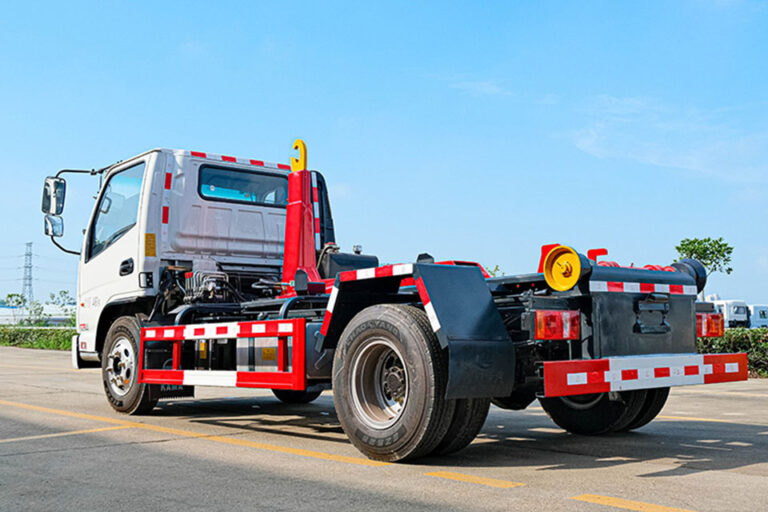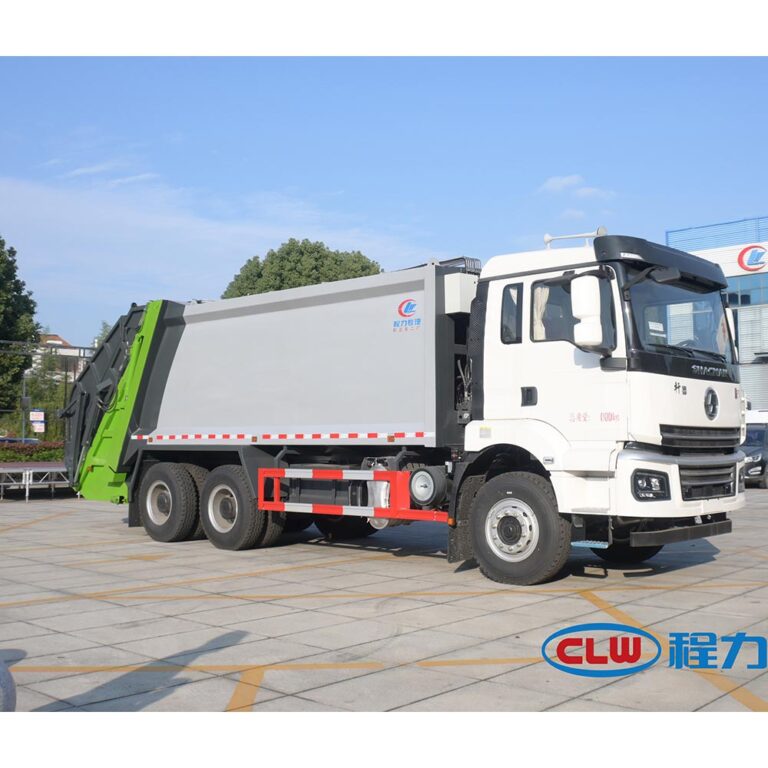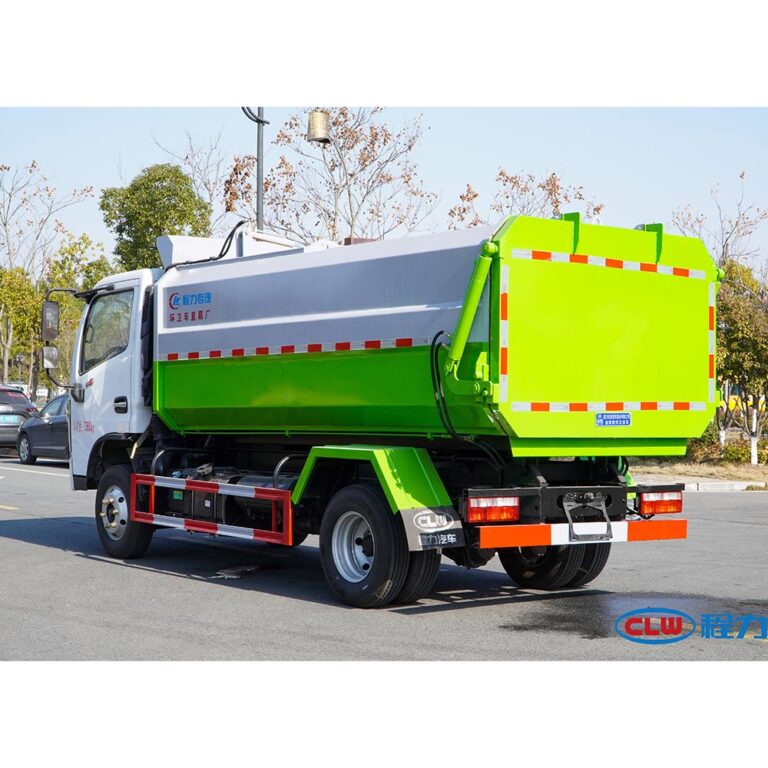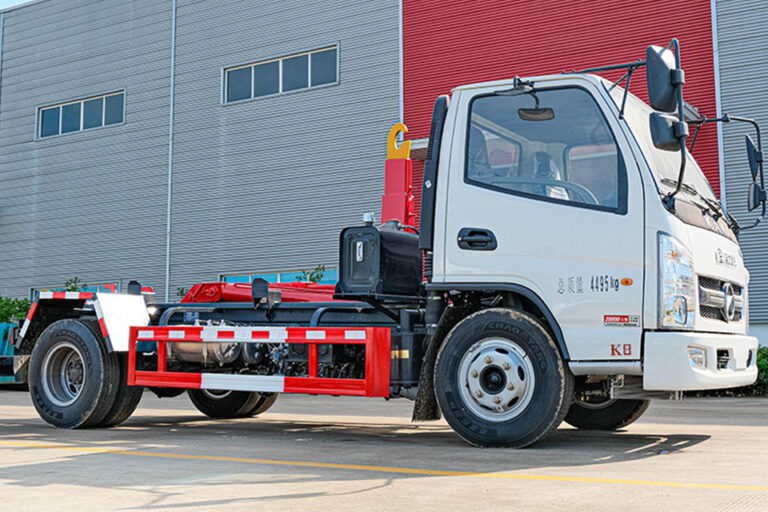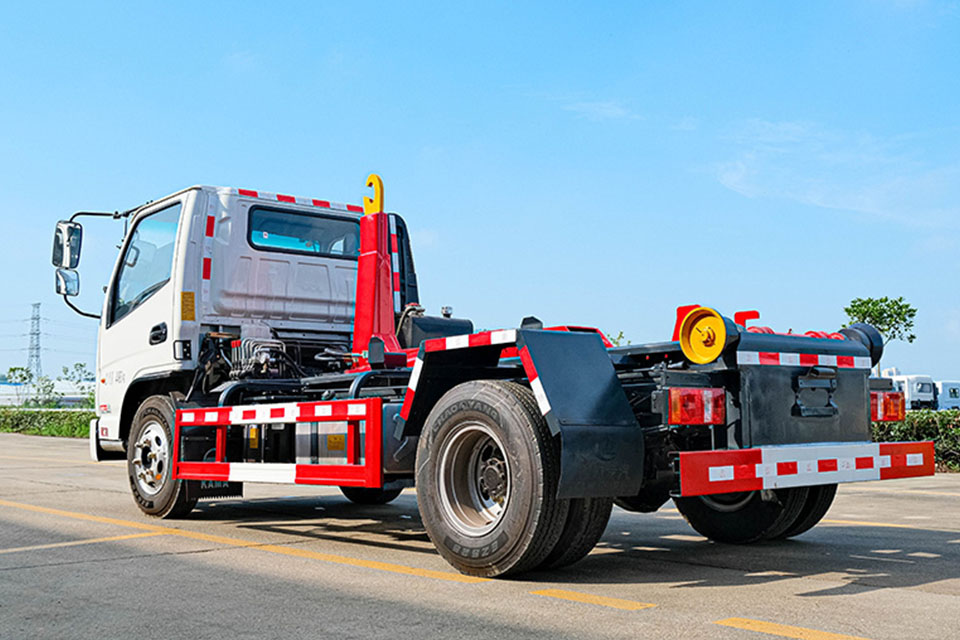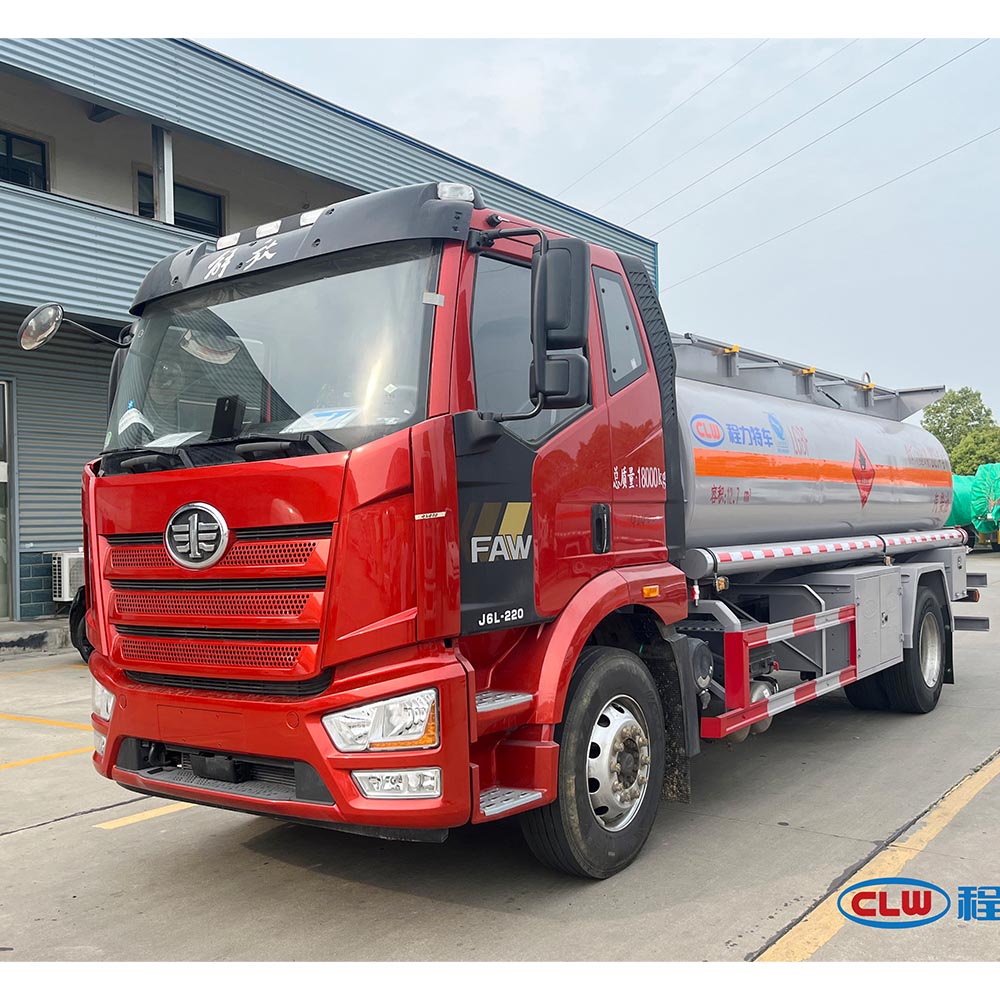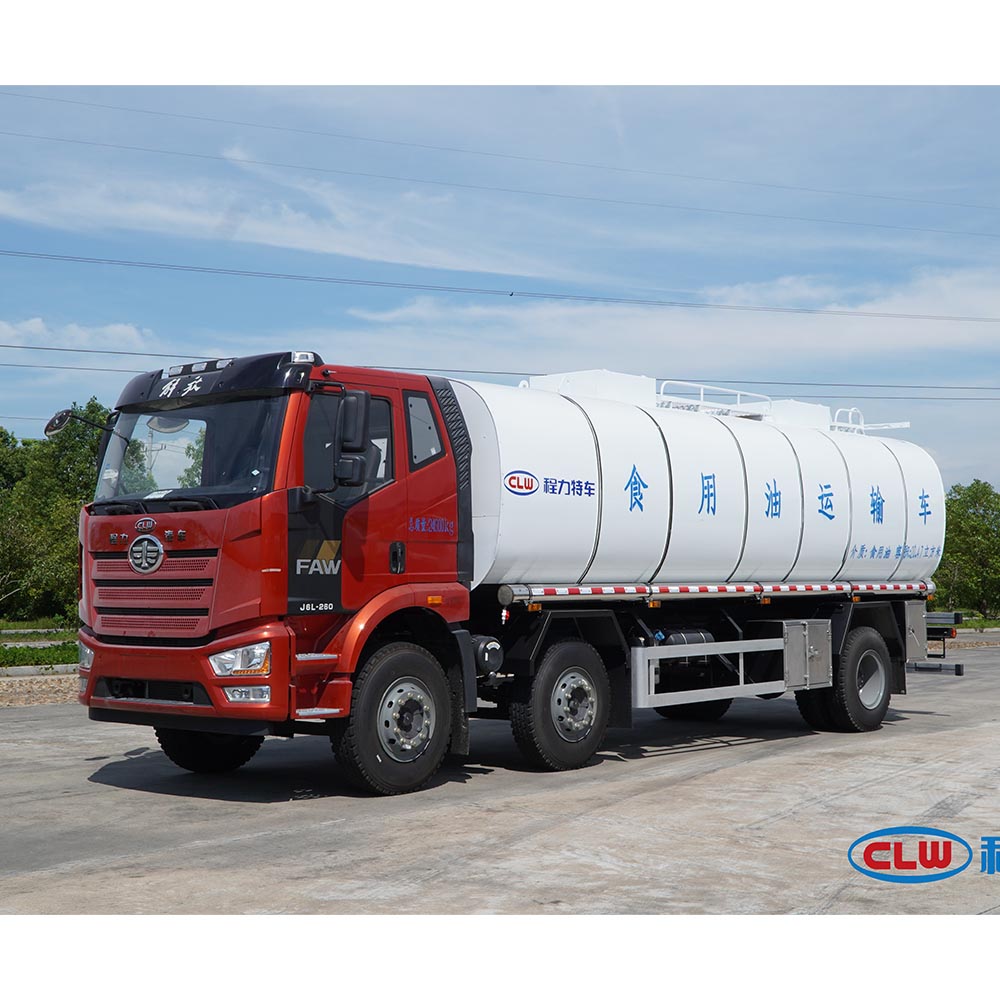-
程力汽车工业园

一辆油罐车可装载多少桶石油
第二季度原油油罐车需求可能翻两番
这篇文章探讨了预计将激增的 原油罐车特别是在第二季度,以及这对各行业意味着什么。作为领先的石油 卡车 我们了解这些车辆在能源领域发挥的关键作用。 能力 其中 卡车以及为什么这些信息对燃油分销商至关重要、 油气公司以及其他利益相关者。这里提供的见解不仅能让您了解当前的市场趋势,还能说明为什么与我们合作能高效满足您的运营需求。对于从事以下运输工作的人来说,这是一本必读书 原油 或其他 液态货物在我们剖析复杂的 罐车 能力和市场动态。
目录
原油油罐车的平均载重量是多少?
平均 能力 的 原油罐车 通常在 5 000 至 11 600 之间 加仑.然而,这可能会因 卡车的 设计 油罐拖车 和监管限制。例如,标准 罐车 可容纳约8000人 加仑而超级 油罐车 可运载多达 11 600 加仑.......。 每辆卡车的载重量 是企业决定运营效率和成本效益的关键因素。了解 能力 帮助公司优化物流,确保以尽可能少的行程运输产品。
此外 能力 不仅是体积,还有重量。 原油与任何液体一样,它有一个特定的密度,这个密度会影响到 卡车 不超过法定重量限制。例如,如果一辆 卡车货舱 8,000 加仑 的 内的轻质液体货物 如果使用的是法定的重量限制,那么在装载密度较大的液体时就会受到体积的限制。因此,了解容积和重量对以下方面至关重要 运输原油的油罐车.我们的一个客户是一家大型石油分销商,他发现,通过改用我们的高级容量油轮因此,他们每年减少了 15% 的运输成本。
一辆油罐车能装多少桶石油?
A 罐车 通常可容纳 120 至 190 桶 油,取决于其 能力.因为一个 每桶石油 相当于 42 加仑, a 罐车 8,000-加仑容量 将容纳约 190 桶.数量 桶原油 a 卡车 对于 石油公司 在规划物流和满足市场需求方面。例如,如果一个油田生产 1 000 万桶 每天大约需要五到八个 罐车 日产量的运输次数,取决于 罐车货舱 尺寸
了解如何 多桶石油 a 罐车 可以帮助计算 油罐车的日常需求 需要。作为制造商,我们亲眼目睹了这些知识如何直接影响采购决策。例如,在需求增加的时期 石油生产,...... 对原油油轮的需求 大幅增加。一项涉及一家大客户的案例研究表明,如果了解了以下方面的确切数量 万桶 每种 卡车 这可以帮助他们优化车队规模,使效率提高 20%。具体型号是 25.5 立方米铝合金运油车.
油罐车有哪些不同类型?
油罐车 有各种类型,每种类型都有特定的用途。 小型油罐车 对于短途运输和小批量货物来说是理想之选。 大型油轮 用于长途运输和大宗货物运输。有 罐车 专为 原油, 柴油机, 天然气以及其他石油产品。此外,一些 油轮 是为运输工业化学品而建造的、 液化石油气 (液化石油气)和其他危险材料。类型 油罐车 所需设备取决于运输液体的性质和运输距离。例如,我们的产品系列包括 食用油运输车 和 加油车 - 12.6 立方米柴油发动机每种设计都能满足特定的行业需求。
选择正确的 罐车 对提高运行效率至关重要。例如 油气公司 可能使用不同的 油轮 用于运输 原油 与炼油产品(如汽油或柴油)相比 柴油机.每种 油罐车 具有独特的功能,如专门的涂层或隔热材料,以确保安全高效的运输。部分 罐车 是 设计用于输送液体 而其他设备则可处理腐蚀性物质。我们的专业知识使我们能够指导客户选择最合适的设备。 油罐车 以满足他们的特殊需求,确保最佳性能和安全。
为什么油罐车对石油和天然气行业至关重要?
油罐车 的骨干力量 油气行业促进 原油 从油田到炼油厂,再从炼油厂到配送中心,石油和其他石油产品的运输都离不开这些设备。如果没有这些 卡车否则,供应链就会瘫痪。它们确保产品的持续流动,为上游和下游业务提供支持。例如 罐车 是采取以下措施的关键 油田原油 并将其运送到加工设施。重要的是 罐车 尤其是在管道不可行或成本效益不高的地区,这种作用怎么强调都不为过。
在 油气行业因此,及时、高效的运输至关重要。 油罐车 提供灵活可靠的移动方式 液态货物它们能适应不同的生产水平和市场需求。它们对于保持稳定的 原油 这反过来又确保了燃料和其他基本产品的稳定产出。此外、 罐车 支持应急服务,在自然灾害或其他危机期间提供燃料。我们的经验表明,各行各业在很大程度上依赖于以下可靠的服务 罐车 因此,它们在能源领域不可或缺。这类卡车的一个例子是 大容量碳钢加油车.
油罐车运力如何影响运输成本?
"(《世界人权宣言》) 能力 的 罐车 直接影响运输成本。 卡车 容量越大,每次运输的产品数量就越多,从而减少了运输次数,降低了燃料和人工成本。例如 大型油轮 11 600-加仑容量 其运输量是 5 000-加仑油罐车从而节省了大量资金。该系统 最大容量 的 罐车 对于希望最大限度降低成本和提高效率的企业来说,"高效 "是一个重要的考虑因素。作为一家工厂的所有者,我看到客户通过选择我们的高能效设备大大降低了运营成本。能力 型号
此外 油罐车的运输长度 产品也会影响成本。长距离运输更多受益于较高的 能力 卡车因为每次旅行节省的费用是按距离复合计算的。通过优化 能力 他们的 油罐车 这样,企业就可以实现规模经济,降低单位成本。 呏 运输。例如,一项研究表明,使用较大的 油轮 长途运输的成本最多可降低 25%。我们的客户也经常报告类似的发现,强调了投资高成本效益的经济效益。能力 罐车.
影响油罐车需求的因素有哪些?
影响 对原油油轮的需求 卡车 石油生产 运输量是一个主要驱动因素;随着产量的增加,对运输的需求也在增加。经济条件、法规变化和季节性变化也起着一定的作用。例如,在需求旺盛的时期,如夏季驾驶季节,对运输的需求就会增加。 罐车 峰值。此外,地缘政治事件也会影响 原油 价格,进而影响运输需求。运输 rystad 时事通讯》明确使用了"...... "一词。 "转向 "的方式 显然并不意味着 什么 卡车司机使用 这个词,突出了该行业的专业语言。
"(《世界人权宣言》) 注意到《Rystad 时事通讯 的亮点,以及他们"......然而,差距有可能扩大 这表明 密集使用卡车 要移动 用卡车将原油运出油田 可能会使可用的 卡车.他们预测 油田可能翻两番 的 卡车 到 2015 年,需要的人数将从 425 人增加到 1700 人。 今年第二季度.这一预测表明 对原油油罐车的需求可能 明显增加。我们在过去也曾观察到类似的趋势,即在未来几年中,飓风和暴风雪的数量会突然增加。 石油生产 导致了 罐车 订单。在这里,使用 铝合金油轮 - 320 马力,26 立方米容量 会很有用。
石油公司如何优化油罐车利用率?
石油公司 可以优化 罐车 通过精心规划路线、安排交付时间和利用技术,提高利用率。路线优化软件可以帮助确定最有效的路线,减少旅行时间和燃料消耗。定期维护 卡车 确保它们以最佳性能运行,最大限度地减少停机时间。此外,使用实时跟踪和监控系统还能让公司更有效地管理车队,对不断变化的情况做出快速反应,最大限度地利用每辆车。 卡车.例如,实施中央调度系统可简化操作,确保 卡车 始终部署在最需要的地方。
另一种策略是投资于高能力 罐车这可以减少所需的运输次数,提高整体效率。通过了解其业务的具体需求、 石油公司 可以选择适当的 油罐车 类型和规模,以优化车队。对驾驶员进行最佳实践培训,如节油驾驶技术,也有助于提高利用率。我们的客户发现,将这些策略结合起来,可以显著提高运营效率并节约成本。
油罐车运营有哪些安全规定?
安全条例 罐车 这些法规非常严格,旨在保护驾驶员、公众和环境。这些法规涉及各个方面,包括 卡车 设计、维护、驾驶员资格和操作程序。例如 罐车 必须接受定期检查,确保符合安全标准,驾驶员必须接受过处理危险材料的专门培训。法规还规定了运输工具的最大重量和尺寸。 卡车 以防止事故发生,确保道路安全。
遵守这些法规对以下方面至关重要 石油公司 和运输运营商。不遵守安全标准可能导致巨额罚款、运营中断和声誉受损。作为一家制造商,我们在以下方面优先考虑安全问题 卡车 设计,采用了先进的制动系统、溢出防止机制和坚固耐用的 油罐车 施工。我们对安全的承诺有助于我们的客户放心操作,因为他们知道自己使用的设备符合最高标准。
油罐车设计有哪些创新?
创新 罐车 设计的重点是提高效率、安全性和对环境的影响。先进的材料,如轻质合金,正被用来减少对环境的影响。 卡车 重量,提高了燃油效率,并使 能力.新 油罐车 在设计中加入了改进的空气动力学和节油发动机等功能,以进一步降低油耗。此外,使用替代燃料的趋势日益明显,例如 天然气 和电力,为 罐车从而减少排放和运营成本。
技术进步也发挥了重要作用。远程信息处理系统可提供以下方面的实时数据 卡车 通过对性能、位置和驾驶员行为的分析,可以更好地管理和优化车队。我们正在探索自动驾驶技术,以进一步提高安全性和效率。作为一家具有前瞻性思维的制造商,我们站在这些创新的最前沿,不断改进我们的产品和服务。 卡车 设计,以满足不断发展的行业需求。下图是 程力牌 - 爆破设备运输车.

我的企业如何从与运油车制造商的合作中获益?
与声誉良好的 油车 像我们这样的制造商可以为您带来许多好处。首先,您可以获得高质量、可靠的 卡车 旨在满足您的具体业务需求。我们的 卡车 我们的产品均按照最高标准制造,确保经久耐用、安全高效。其次,我们提供专家建议和支持,帮助您选择合适的设备。 卡车 针对您的要求,优化您的车队,使其发挥最大性能。我们对行业的深刻理解使我们能够提供量身定制的解决方案,以应对您的独特挑战。
此外,我们还提供全面的售后服务,包括保养、维修和零部件供应,确保您的 卡车 保持最佳状态。我们对客户满意度的承诺意味着我们将随时为您提供帮助,提供及时有效的支持。与我们合作,您购买的不仅仅是 卡车我们将为您的成功提供值得信赖的合作伙伴。我们丰富的经验和创新的方法使我们成为企业的理想选择,帮助他们提高 罐车 操作。另一个适当的链接是 12.7 立方米碳钢油轮.
常见问题
油罐车的使用寿命一般有多长?
一般情况下 罐车 约为 10-15 年,具体取决于使用、维护和运行条件。定期维护和及时维修可以延长使用寿命。 卡车确保其保持最佳状态。
如何确保油罐车的安全?
我们确保 罐车 通过严格的测试,符合行业标准,并采用了先进的安全功能。我们的 卡车 这些设备都经过全面检查,其设计旨在最大限度地降低与运输危险材料有关的风险。
您能否定制油罐车以满足特定要求?
是的,我们提供定制选项,以满足特定要求。无论您需要 卡车 与某一 能力我们可以根据您的需求,为您量身定做适合您的设计、专用设备或独特功能。
你们提供哪些售后支持?
我们提供全面的售后支持,包括维护、修理和零件供应。我们的专业支持团队随时为您提供帮助,确保您的 卡车 高效可靠地运行。
如何确定适合我需求的油罐车容量?
确定正确的 罐车容量 这取决于以下因素,如您需要运输的产品数量、您的 油轮运输长度以及监管限制。我们的团队可以帮助您评估需求,并推荐最合适的解决方案。 卡车 为您的业务服务。
使用大容量油罐车有哪些优势?
高油罐车 它们具有多种优势,包括降低运输成本、减少运输次数和提高效率。它们尤其适用于长途运输和大批量运输,帮助企业优化物流和提高盈利能力。
结论
- 需求 原油罐车 特别是在第二季度,在以下因素的推动下,将出现大幅增长 石油生产 和经济因素。
- 油罐车容量 对企业来说是一个至关重要的考虑因素,直接影响到运输成本和运营效率。
- 不同类型的 罐车 满足特定需求,从运输 原油 和 柴油机 工业化学品和 液化石油.
- 油罐车 对 油气行业确保产品源源不断地从油田运往炼油厂和配送中心。
- 优化 罐车 利用涉及到战略规划、技术采用和对高技术的投资。能力 车辆。
- 安全条例 罐车 严格,强调 卡车 设计、维护、驾驶员资格和操作程序。
- 创新 罐车 设计注重效率、安全和环境影响,并在材料、发动机和技术方面取得了进步。
- 与声誉良好的 油车 制造商提供高质量 卡车专家支持和全面的售后服务。
- 使用 42 加仑 以确定 一桶 这是行业标准,了解这种转换对物流规划至关重要。
- 中使用的专门语言 RYSTAD 通讯 强调了在行业内进行明确沟通以避免误解的必要性。
通过了解这些关键点,企业可以更好地为市场变化做好准备,并做出明智的决策来加强运营。作为全球领先的 油车 我们致力于提供创新、可靠和高效的解决方案,以满足不断发展的行业需求。现在就联系我们,了解我们如何支持您的业务并帮助您实现运营目标。

